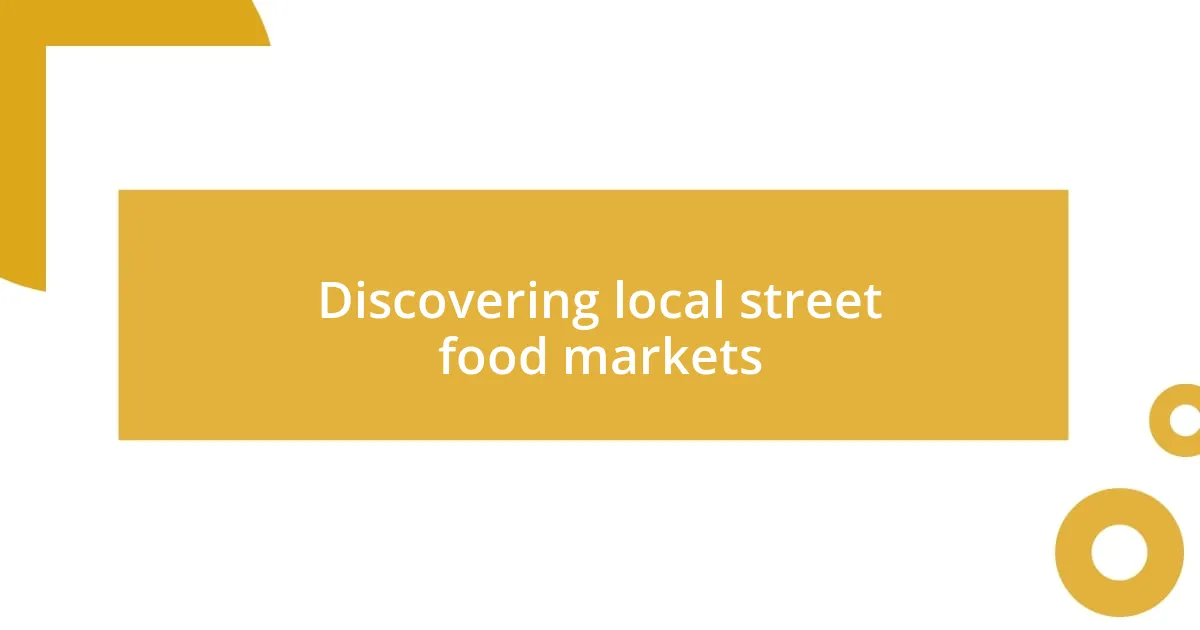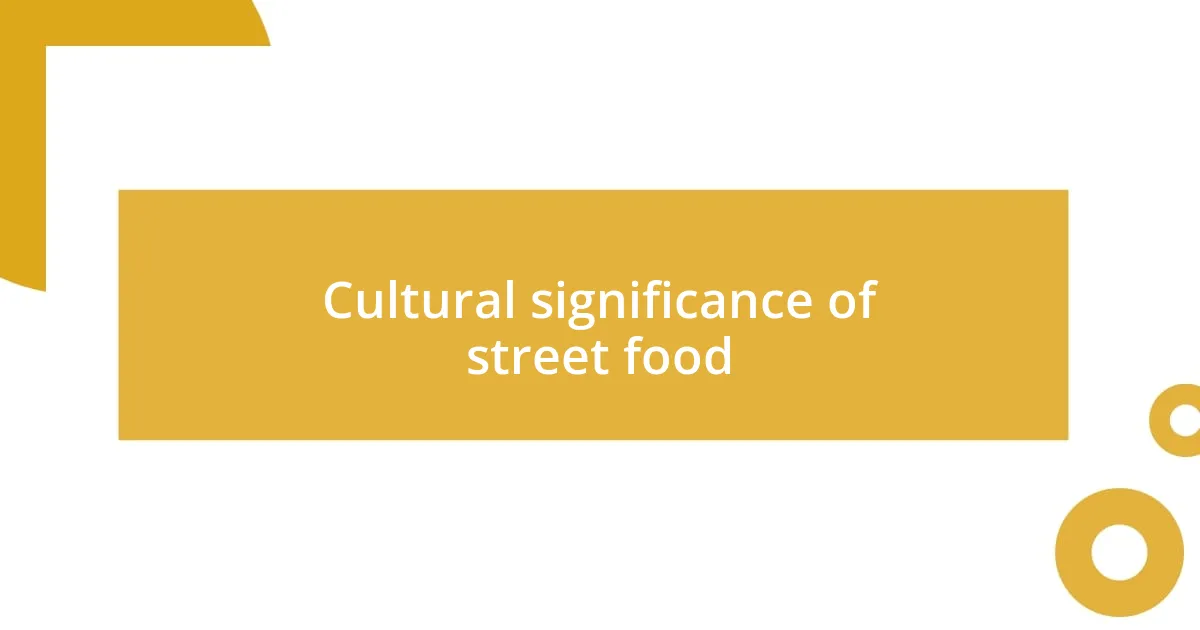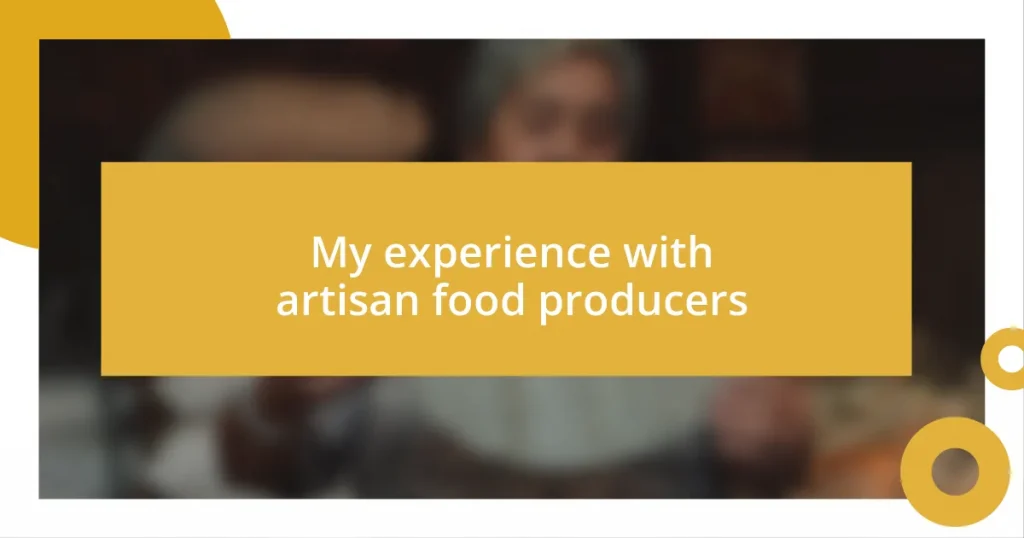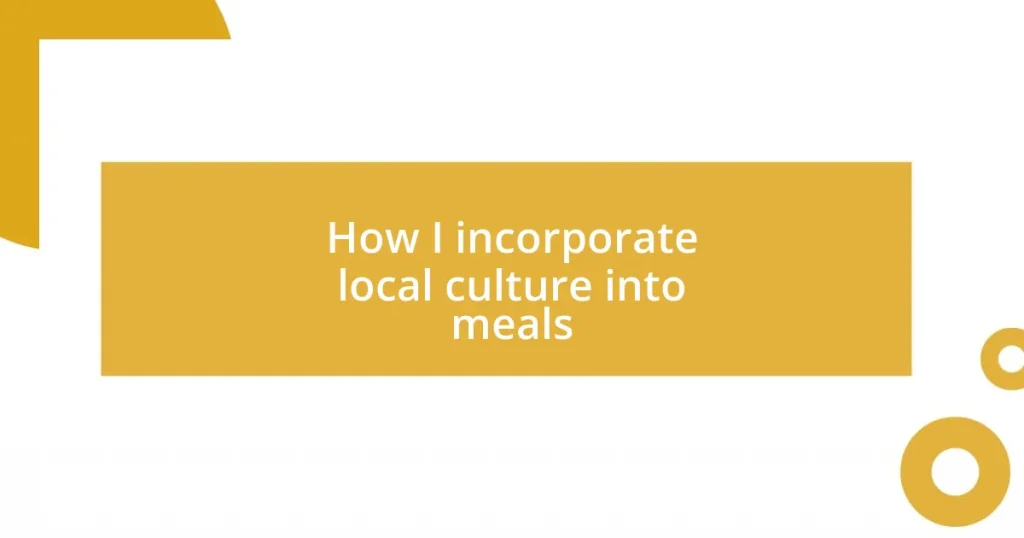Key takeaways:
- The author experiences vibrant street food markets, overwhelmed by flavors and a sense of community.
- Street food serves as a cultural connector, reflecting traditions and histories through every dish.
- Interactions between locals and vendors highlight the communal and performative aspects of sharing meals.
- Tasting international dishes in one market fosters a sense of belonging and transcends cultural boundaries.

Discovering local street food markets
The first time I wandered into a local street food market, the sights and smells enveloped me like a warm embrace. Vendors shouted enticingly about their dishes, each more delicious-sounding than the last. I remember thinking, how could I possibly choose just one?
As I strolled through the stalls, my heart raced at the kaleidoscope of flavors on display. I can still vividly recall the moment I took my first bite of spicy samosa from a cheerful woman who taught me how to eat it with tamarind chutney. It was like fireworks going off in my mouth, and I thought, was this what I’d been missing all along?
What struck me most was the sense of community buzzing through the market. Strangers came together over shared plates and laughter, creating a vibrant tapestry of life. Have you ever felt more connected to a place than when you’re savoring fresh, local flavors with new friends? In that moment, I realized that street food wasn’t just about feeding the body; it was also about nourishing the soul.

Cultural significance of street food
Street food is more than just quick bites; it embodies the heartbeat of a culture. I remember standing in a bustling night market in Thailand, watching how the locals interacted with vendors. The laughter, the exchanged banter, and the ritual of ordering food became a performance that seamlessly connected generations. Isn’t it fascinating how a simple meal can showcase cultural practices passed down through time?
Every plate tells a story, one that reflects the history and traditions of a region. The vendors aren’t merely selling food; they’re sharing their heritage. I once met a taco seller in Mexico City who proudly recounted how his family’s recipe had been used for over fifty years. It made me think: how many stories go untold when we overlook the culinary art of street food?
Moreover, street food fosters a sense of belonging and diversity. While sampling dishes from around the world in a single market, I felt a beautiful blend of cultures. Isn’t it incredible how a wrap from one corner of the globe can taste just as familiar as a dish from another? It’s a reminder that food unites us, transcending geographical boundaries and cultural divides, ultimately creating a sense of community that is both uplifting and profound.













